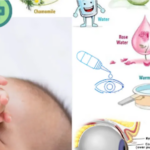You’ve likely noticed probiotics in the baby food aisle. Probiotics are good bacteria that can have health benefits. They can reduce colic, eczema and other symptoms in our children, but do they make them healthier? This is the million-dollar research question.
Different strains of Probiotics have different functions. Doctors suggest, for instance, that the two best-known groups — Lactobacillus, and Bifidobacterium – promote digestive health. These probiotics, though we still need to do more research, are thought to aid digestion, and provide relief for people suffering from diarrhea, lactose-intolerance, and irritablebowel syndrome. Probiotics are still a mystery to us. We don’t know how they work or what health issues each strain can treat. It’s hard to find any scientific evidence that probiotics can benefit other organs than the digestive tract. What do we know? What is the truth about probiotics?
Since birth, your child has had millions of bacteria in his gastrointestinal tract. Your baby’s gastrointestinal tract was colonized by bad and good bacteria as it passed through the birth canal. Breast milk is the best way to build up good bacteria in your baby’s GI tract after birth. This is because it contains prebiotics, fibers our bodies cannot digest but which the healthy bugs feed on. These fibers are able to pass through breast milk but formula-fed infants do not need probiotics.
Children who are taking antibiotics for ear infections or other conditions may be given probiotics by their doctors. This can help restore or maintain the ratio of bad to good bacteria in their gut. There are also other situations where giving your baby a good bacteria punch is appropriate:
Diarrhea: While changes in bowel movement are common among infants, probiotics may help reduce diarrhea symptoms. Lactobacillus was found to be effective and safe in treating infectious diarrhea among children. Certain strains of Lactobacillus can also alleviate bouts associated with antibiotics.
Multiple studies have shown that babies who are given probiotics – specifically Lactobacillus Reuteri – experience fewer colic attacks, particularly if taken during the first 3 months of their lives. They tend to cry less and have a better stomach. The study is promising but it needs to be repeated before probiotics become standard in the United States. It is also important to research whether formula-fed babies benefit from probiotics.
Probiotics may help ease eczema. They do not prevent the eczema, but they can reduce sensitivity to certain foods (like milk), and in so doing, help reduce the risk for atopic skin disease in babies.
According to some studies, the consumption of Lactobacillus or Bifidobacterium strains has been shown to reduce the acute respiratory symptoms that are associated with allergies and common colds. Many experts are sceptical about this claim.
You can boost your baby’s probiotics by adding fruits and vegetables such as bananas, onions and apple peels to your breast milk. Yogurts and fiber-rich foods are great sources of probiotics for babies who can eat solids. If your baby is still too young to eat dairy or other solid food, you may want to consider supplements.
You can find probiotics for babies online, in grocery stores such as Whole Foods Market, or as powder or chewable tablets. Before you start giving them to your baby, talk to your doctor. Research needs to keep up with current trends. The doctor won’t prescribe probiotics but will help you to digest the available information and determine the best, most safest way to treat your child’s illness.












